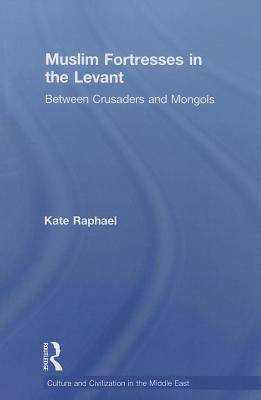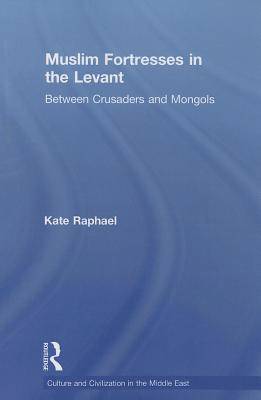
- Retrait gratuit dans votre magasin Club
- 7.000.000 titres dans notre catalogue
- Payer en toute sécurité
- Toujours un magasin près de chez vous
- Retrait gratuit dans votre magasin Club
- 7.000.0000 titres dans notre catalogue
- Payer en toute sécurité
- Toujours un magasin près de chez vous
Description
During much of the twelfth century the Crusaders dominated the military scene in the Levant. The unification of Egypt and Syria by Saladin gradually changed the balance of power, which slowly begun to tilt in favour of the Muslims. This book examines the development and role of Muslim fortresses in the Levant at the time of the Crusaders and the Mongol invasion, situating the study within a broad historical, political and military context.
Exploring the unification of Egypt with a large part of Syria and its effect on the balance of power in the region, Raphael gives a historical overview of the resulting military strategies and construction of fortresses. A detailed architectural analysis is based on a survey of four Ayyubid and eight Mamluk fortresses situated in what are today the modern states of Jordan, Israel, Southern Turkey and Egypt (the Sinai Peninsula). The author then explores the connection between strongholds or military architecture, and the development of siege warfare and technology, and examines the influence of architecture and methods of rule on the concept of defence and the development of fortifications.
Drawing upon excavation reports, field surveys and contemporary Arabic sources, the book provides the Arabic architectural terminology and touches on the difficulties of reading the sources. Detailed maps of the fortresses in the region, the Mongol invasion routs, plans of sites and photographs assist the reader throughout the book, providing an important addition to existing literature in the areas of Medieval Archaeology, Medieval military history and Middle Eastern studies.
Spécifications
Parties prenantes
- Auteur(s) :
- Editeur:
Contenu
- Nombre de pages :
- 270
- Langue:
- Anglais
- Collection :
Caractéristiques
- EAN:
- 9781138788886
- Date de parution :
- 10-03-14
- Format:
- Livre broché
- Format numérique:
- Trade paperback (VS)
- Dimensions :
- 155 mm x 231 mm
- Poids :
- 521 g

Les avis
Nous publions uniquement les avis qui respectent les conditions requises. Consultez nos conditions pour les avis.






